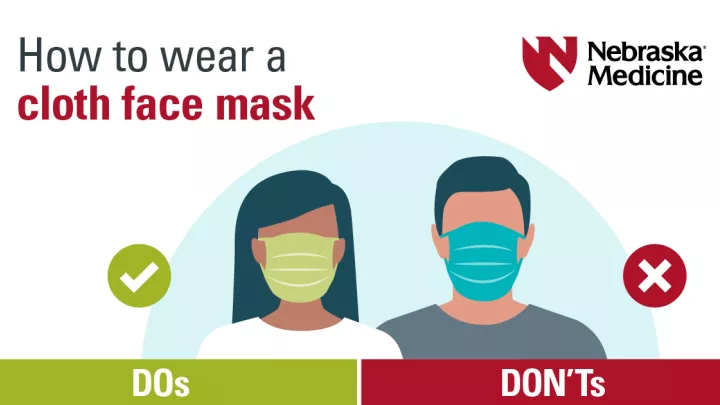Who COVID-19 targets and why

What are the key differences between someone who gets really sick, versus someone who barely gets sick or has no symptoms at all?
On a community level, some groups seem to be at higher risk for developing a more severe form of COVID-19. But there's another factor at play. How someone encounters the coronavirus – and which coronavirus they encounter – also plays a role in the severity of their COVID-19 illness.
"Most COVID-19 cases have minimal symptoms," says infectious diseases expert Nada Fadul, MD. "They recover quickly and don't require hospitalization."
Read on to see what factors separate the mild COVID-19 cases from the more serious ones.
Some groups are at higher risk for severe cases of COVID-19
About 80% of COVID-19 cases are mild and don't require hospital care. Of the 20% who go to the hospital, some of those people have complications.
From the data so far, these factors affect the severity of COVID-19:
- Age. Older adults are more likely to develop serious COVID-19 complications. According to the Centers for Disease Control and Prevention, 8 out of 10 deaths reported in the United States have been in adults 65 years or older
- Sex. Studies show that men are at higher risk for a severe COVID-19 illness or death than women. In New York City, men were hospitalized more often than women. In Italy, 82% of ICU cases were men
- Race. In the United States, people of Hispanic, African American and Asian descent are experiencing more cases and deaths. For reasons other than genetics, COVID-19 is affecting minority communities unequally.
- Health conditions. People with obesity, cancer, high blood pressure, diabetes and other health conditions are at higher risk. "If you take a pill every day, you are at high risk," Douglas County Health Director Adi Pour, MD, says. "Most likely that pill is for an underlying condition that puts us in that risk category"
So, how can you reduce your risk of getting sick?
Your immune system works hard to fight invaders. There are things you can do to support your immune system – like improving your sleep, eating healthy foods and exercising regularly.
The coronavirus itself affects COVID-19 severity
The coronavirus itself also factors into the severity of COVID-19. It's important to keep in mind that COVID-19 is an entirely new illness, so some things are currently unknown.
"It takes years to understand infectious diseases," says Dr. Fadul. "For COVID-19, researchers will need to conduct lab experiments to see how this virus behaves in environments. Translating science from bench to bedside takes time, expertise and training."
These two things seem to affect COVID-19 severity:
- How much coronavirus you're exposed to: People with COVID-19 release viral particles into the air. A sneeze releases many more infectious viral particles than regular breathing. Some researchers believe that the number of viral particles someone encounters affects how sick they'll get. If true, this means that the more particles you encounter, the more likely you will catch the illness.
- Which coronavirus you encounter: There is actually a family of coronaviruses in the world today. Some coronaviruses, like the viruses that cause MERS and SARS, are well contained. The "novel" or new coronavirus that you hear about most is the one that causes COVID-19. The new coronavirus has multiple forms, due to tiny differences in its genetic material.
You can avoid infection by choosing how you interact with people outside your immediate household. Follow local health guidelines like:
- Wear a mask around others
- Wash your hands regularly with soap and water
- Avoid touching your face
- Avoid large groups of people
- Wipe down high-touch surfaces with disinfectant






